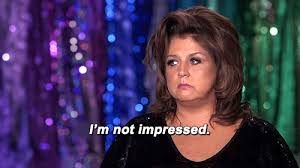Pierre, or the Ambiguities, comes across to me as a showcase of the creative and expressive inner-workings of Melville’s mind, but it took me a while into the book to realize that. While beginning to read it, I was struck by how dense and heavy the style of writing was, and I found it often difficult to follow and focus on because of the overly detailed, rambling quality of the writing — at first, I wasn’t appreciative of it at all. And to be quite honest, I could hardly get through it without taking several breaks throughout my reading sessions. But after discussing the concepts of Pierre in class and continuing to read it, I began to realize that the rambling quality of the writing is an art form in a sense.
When the idea in class was brought up to me that the stylistic choice was possibly a purposeful decision to convey the idea of a “stream of consciousness”, or to help characterize the insanity of Pierre as a person, or even not on purpose, and could portray the unusual mechanisms of the literary mind of Melville, I realized that it was a fascinating literary choice. It began to interest me that the fact that the writing style comes across as insane and nonsensical reflects the character of Pierre in the sense that he and his ideals truly do not fit in with the world he is in. Overall, I would not go as far as to say that the writing style of Pierre, or the Ambiguities, was enjoyable or engaging to read at all, but I will say that it had more depth and creativity than what my first impression of it was, in an artistic and interesting manner. And I do understand why some would describe the language as elegant, sprawling, and beautiful sentences strung together which creates a never-ending, yet reflective and symbolic, psychological stream of consciousness.
Furthermore, the idea of time and how it is represented and spread out over the course of the story was also fascinating to me, and interestingly constructed by Melville. This slow-moving and drawn out organization of time reminded me of when I was a child, when a single day would feel much longer than a day in my life would be today, as a young adult. Something about childhood and growing up makes time run differently, and this book reflected that youthful “coming-of-age” characteristic. Even though this organization of time did make it much more difficult to read and follow the direction of the plot, it was still a unique facet of the story which I grew to appreciate. I feel that way about the book as a whole — even though it isn’t easy to read, and not always understandable or necessarily “enjoyable” in the typical sense, it was abstract, unique, interesting, and brilliantly constructed to reflect the symbols of abnormality throughout the story, such as Pierre’s familial and romantic relationships (which don’t seem to differ much to Pierre), his personality, his decisions, and his overly-romantic and strange outlook on life compared to the societal standards of the time as his life unravels as the book goes on.
Would I recommend this to a friend for an enjoyable read? No.
But would I recommend this to a fellow student to experience an interesting way of thinking, like a scholarly puzzle in a literary form? Perhaps.
Overall Rate: 3 stars / 5 stars



